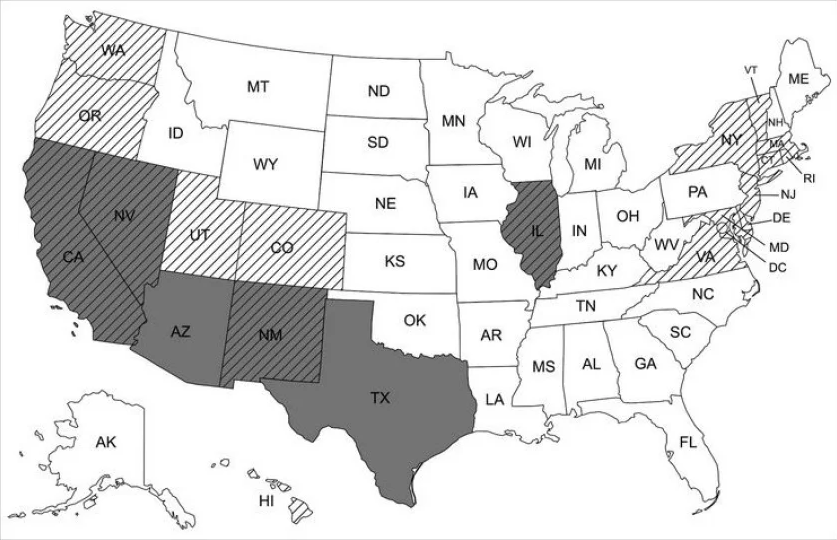
On March 7, Minnesota became the 19th state to allow undocumented immigrants to obtain driver’s licenses. Minnesota’s governor, Tim Walz, noted at the signing that preventing immigrants from receiving driver’s licenses had been meant as a public-safety measure. But it never worked out that way. Instead, the measure had backfired. The governor argued that it “caused great personal harm, great community harm, and great economic harm” to the state.
Our new research suggests that Gov. Walz and the 18 other states are on to something — allowing immigrants to earn driver’s licenses regardless of their legal status improves road safety for everyone.
Why are politicians across the country working on expanding access? There are two lines of thought behind efforts to expand driving privileges. The first is public safety and the second is about assimilation and belonging.
The reality for policymakers to grapple with is that immigrants live, work and sit in traffic with all of us. Some of those drivers are on the road even when they can’t obtain a driver’s license because they are undocumented.
Looking at all crashes, driving without a license is one of the main reasons a driver flees the scene. For undocumented migrants, this is not merely a traffic offense. Driving without proper authorization may be considered a criminal offense. It can jeopardize their ability to adjust their immigration status or even result in deportation. Fearing any interaction with officials, undocumented migrants might flee the traffic scene, even if they were the victims.
Research on California’s expansion of driving privileges showed a reduction in hit-and-run accidents one year after the policy’s enactment. In our new paper, we looked at fatal crashes to see if the public safety benefits could be saving lives. Using 30 years of data, and thus able to speak to longer-term impacts, we come to two important conclusions.
First, in states with larger undocumented populations, the ability to legally drive has no impact on the number of fatalities per 100,000 people. This finding is consistent with the notion that undocumented migrants were already driving without a license.
Second, when focusing on fatal hit-and-run accidents, we find reductions in both the number of fatal hit-and-runs per 100,000 and the share of all fatal accidents. Specifically, the share of fatal accidents that are classified as hit-and-runs, which usually averages 6 percent, drops to about 2.6-4.6 percent of all fatalities. That’s a large and encouraging reduction of as much as 50 percent following the extension of driving privileges to undocumented immigrants.
The implication is that having a driver’s license removes the fear of criminal offense, incentivizing undocumented people to remain at the scene and contact first responders, resulting in fewer deaths.
States in dark gray are those with a high share of likely undocumented residents. States with lines are those that have adopted policies expanding driver’s licensing for undocumented immigrants. (Center for Growth and Opportunity)
Our research suggests that policymakers across the country can make roads safer for everyone by allowing people to get licenses, even if they are in the country illegally.
Driver’s licenses are also about access and community belonging. In many cases, undocumented people have U.S.-citizen children. The Migration Policy Institute estimates that there are around 4.4 million citizen children with at least one undocumented parent. When unlicensed, parents may be less likely to drive to parent-teacher conferences or other school events. That limits their engagement in their children’s education.
Reducing community engagement limits immigrant families’ integration. For example, other research shows that when households with a mix of citizen and undocumented members retreat from the wider community, the children have lower English abilities. This creates challenges for social integration because English abilities are important to success in school and finding employment.
Whether or not the 31 other states will extend driving privileges to undocumented immigrants remains a contentious issue. For state policymakers willing to brave the waters, our research and that of others makes the public safety benefits clear.
Driver’s licenses for all make the roads safer for everyone.




 Governing
Governing